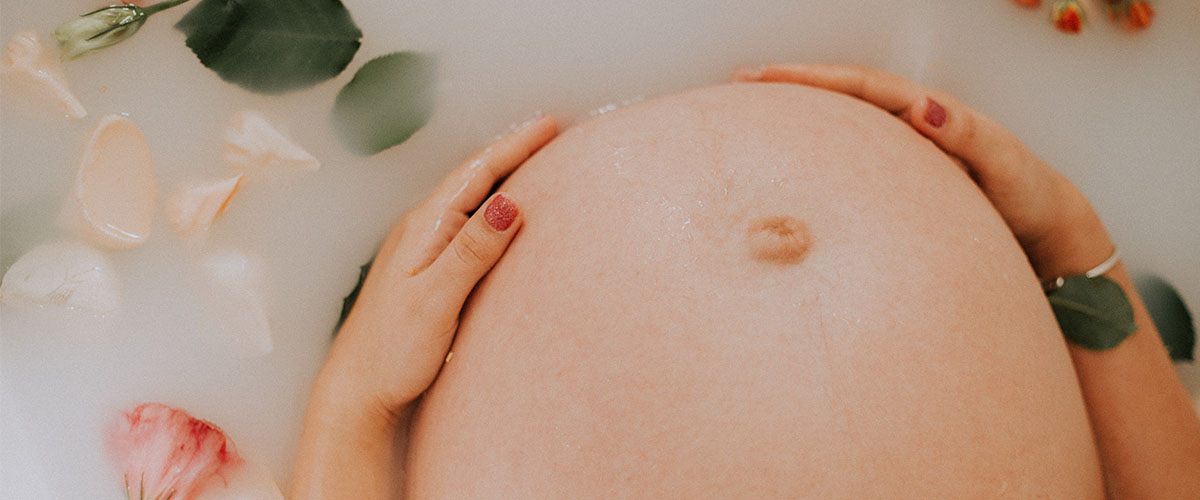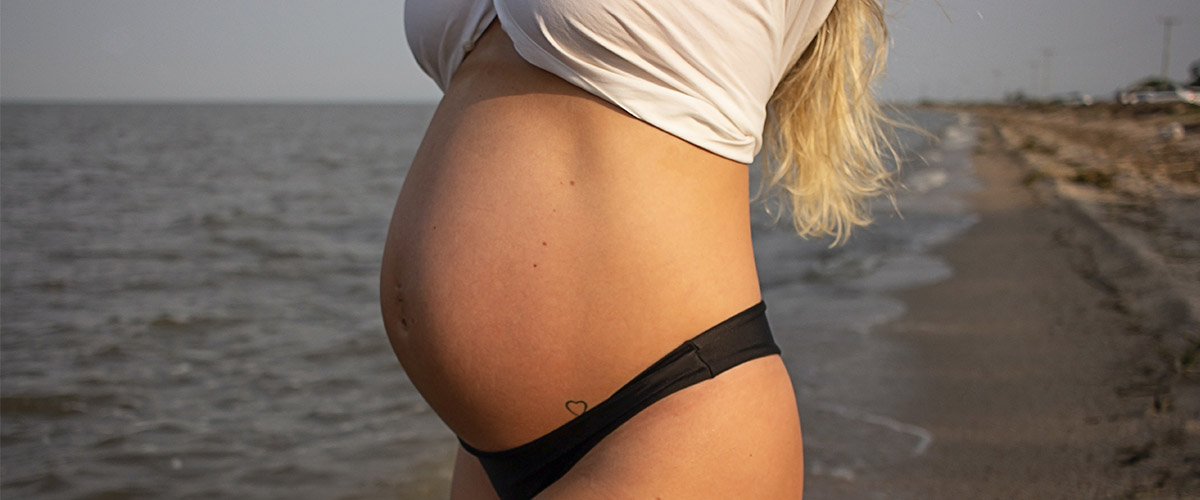Treatment & Therapy
Safe Spa Treatments During Pregnancy
29.07.2022

Creating a new life is a miraculous experience for every expectant mother. Every step of pregnancy is like an exciting journey in itself. What you deserve most on this journey is relaxation and pampering in your self-care for both yourself and your baby.
Undoubtedly, expectant mothers need extra special care because of the bodily and hormonal changes that cause aches and pains, maternal stress and anxiety, sleep disorders, and the readjusting center of gravity. And a good spa treatment is one of the most effective ways to satisfy this need. But while some spa treatments are considered perfectly safe – of course, with necessary caution and guidance– some are advised to be avoided at least during certain stages of pregnancy.
Then, let's take a closer look at which spa treatments you may indulge yourself in during your pregnancy, and which spa treatments you should postpone until it’s safe again.
Doctor’s Assent and Pre-consultation
No matter at what phase of pregnancy you are, always consult with your doctor before planning your spa visit. Treatments that may be suitable for other future mothers may not be safe for you. If you are experiencing a risky pregnancy, you may be in need of a more sensitive approach. Likewise, if you’re at high risk like thrombosis or premature birth, you may even be advised not to receive spa treatment.
Also make sure to inform your therapist on your medical history, allergies and such like special circumstances, so that the treatment you’ll receive can be tailored to you.
Therapist Choice
Carrying life is no joke. The slightest omission of your therapist can adversely affect your blood circulation and level of oxygen feeding your baby, or even cause miscarriage. Confirm that your practitioner(s) is/are specially trained, certified and have competent experience in prenatal treatment.
Timing
Even though you’re one of those lucky ones who doesn’t suffer from morning sickness, you might still be in the harm’s way like miscarriage during your first trimester, as your body will experience her initial transitions. And in the last trimester, you may be at risk of premature birth. Thus, the second trimester of your pregnancy is considered the ideal time, in particular for your massage treatments.
It can be considered safe to receive customized prenatal treatments in the early and final stages of your pregnancy. But it is always crucially vital to check with your doctor and therapist as to when and which treatments will be safe for you.
Essential Oils
Some essential oils that are usually used in spa massages and treatments may trigger uterine contractions and miscarriage and harm your baby’s normal development. Likewise, herbal teas served after your treatment or during your relaxation…
According to a recent study conducted in 2021, herbs and essential oils including sage, camphor, eucalyptus, anise, cinnamon bark, fennel, savin, lavender, parsley seed, black seed, myrrh are stated to be of such nature. It has further been found that lemongrass, melissa, May Chang and other citral oils, and oregano oil, which have GRAS status by FDA, and oils like rue oil are or may be, teratogenic. Some doctors claim that from the second trimester of your pregnancy, essential oils such as chamomile, ylang-ylang, and rose oil can be included in your spa treatment, provided they are extra diluted in fixed oil. Of course, to be more on the safe side, you can request only odorless fixed oils to be used in your treatment.

Prenatal Massages
Today, many spas offer “prenatal massage” therapies for mothers-to-be. Provided that necessary precautions are taken, these massages may help improve your blood circulation and increase your oxygen flow, relieve your back, leg and joint pain, reduce edema, decrease your stress and anxiety levels, improve your sleep pattern and improve your skin elasticity.
A suitable pregnancy massage would avoid hard and heavy movements and pressure points that could stimulate your pelvic muscles, but instead applied with soft, sliding pressures and light kneading techniques similar to that of Swedish massage, and usually focus on the head, back, shoulders and legs.
The best position in prenatal massage is the side-lying position, supported by special pillows. It is usually recommended not to lie on your stomach after the first stage and stop lying on your back after the 16th week, which may lower your blood pressure given the weight of your uterus on vena cava veins.
Facials
As your hormone balances change during your pregnancy, you may face troubles like excessively dry or oily skin, or pigmentation. Good news is, you can get facials while pregnant to help remedy these troubles. Among the facials you can indulge at the spa are balancing and moisturizing treatments, oxygen masks and herbal clay masks, and steam facials, providing the steam does not increase body temperature.
Refrain from ingredients like retinoids and salicylic acid that may harm your unborn baby, also from harsh chemical peels and micro-dermabrasion since they might damage your sensitive skin.
Foot and Leg Treatments
Should you incur swelling and/or joint pain in your legs and feet due to uterine pressure during your pregnancy, you can benefit from foot baths including Kneipp therapy and tropical showers, but for the lower legs only. Similarly, you can receive leg massages with light massage techniques. Leave out intense massages like deep tissue massage, which can create blood clots in the legs.
Reflexology is claimed to be generally safe during any phase of your pregnancy. But your reflexologist must be certified and experienced in “prenatal reflexology”. In addition, the reflexology areas like the SP6, B60, and B67 acupressure points must be untouched during therapy, as these points might stimulate uterine contractions or cramps.
Bath Therapies
A bath therapy is deemed doable while pregnant, but pay extra attention to the products used (essential oils, herbal extracts, etc.) and the water temperature. Temperature is especially important, as high temperatures can both increase the risk of miscarriage and based on previous research, hot baths, especially ones taken in the first month, can cause brain and spinal cord damage in your baby.
Flotation
If the water temperature is ideal, flotation may be safe as a prenatal treatment. Therapists suggest that floating should aid in reduction of your stress levels and inflammation in your legs, and help you get into a meditative state and thus sleep better, thanks to the overall relaxation it provides.
Acupuncture
When applied by an expert practitioner, acupuncture is said to have healing effects against morning sickness, aches and pains, stress and depressive feelings. According to recent studies, acupuncture is relatively safe for pregnant women; however, you may experience short-term mild complications (for example, pain or swelling at the needle entry points). However, as it may increase the risk of miscarriage, SP6, LI4, BL60, BL67, GB2, LU7, CV3-CV7, BL27-BL34 points should be avoided during your treatment.
Manicure and Pedicure
Mani-pedi are generally regarded as safe during pregnancy, if done by an experienced practitioner certified for maternity care. Refrain from products containing toluene, phthalates, and formaldehyde in your nail polish. It would be safer if you prefer toxin-free, organic products for your care, and take your own nail tools. Skip feet and calf massages during your pedicure, as this kind of care requires special reflexology knowledge.

Intensive Massages
Since tensions and pressures may disturb your body, it is recommended to avoid intense modalities like Thai or Deep Tissue and Shiatsu-like somewhat rough and dry massages, especially in the first trimester of your pregnancy.
Heated Treatments
Expecting mothers are advised to refrain from any heated spa concept that raises your body temperature, in particular during the first trimester, but mostly throughout the pregnancy. When the optimum temperature is 38.8 degrees Celsius (101 F), even 10 minutes in the bath or jacuzzi is enough to exceed the limit. So, cross out heated treatments like hot tubs, whirlpools, steam rooms, saunas, and heated caldarium loungers and body wraps.
Consecutive Cold & Hot Hydrotherapy
If your doctor gives a go to hydrotherapy (no jets, though), ensure that the temperature is fixed below 35 degrees Celsius (95 F) and remains always warm (not cold). As such, avoid entering consecutive hot and cold areas as it may induce hormonal imbalances and miscarriage.
Certain Exfoliations
Harsh chemicals and detox peels that are likely to mix into your blood should not be used during pregnancy. In addition, since your skin will become more sensitive, try avoiding rough peeling applications containing salt and sugar.
May you embrace your baby with great health and serenity…
Step into a realm where the soothing power of water, the calming essence of nature and the healing effect of herbs...
Read moreOur life is like a canvas; each stroke of the brush creates a unique masterpiece that tells the story of our...
Read moreBody, mind, spirit... The three fundamental aspects of our...
Read more